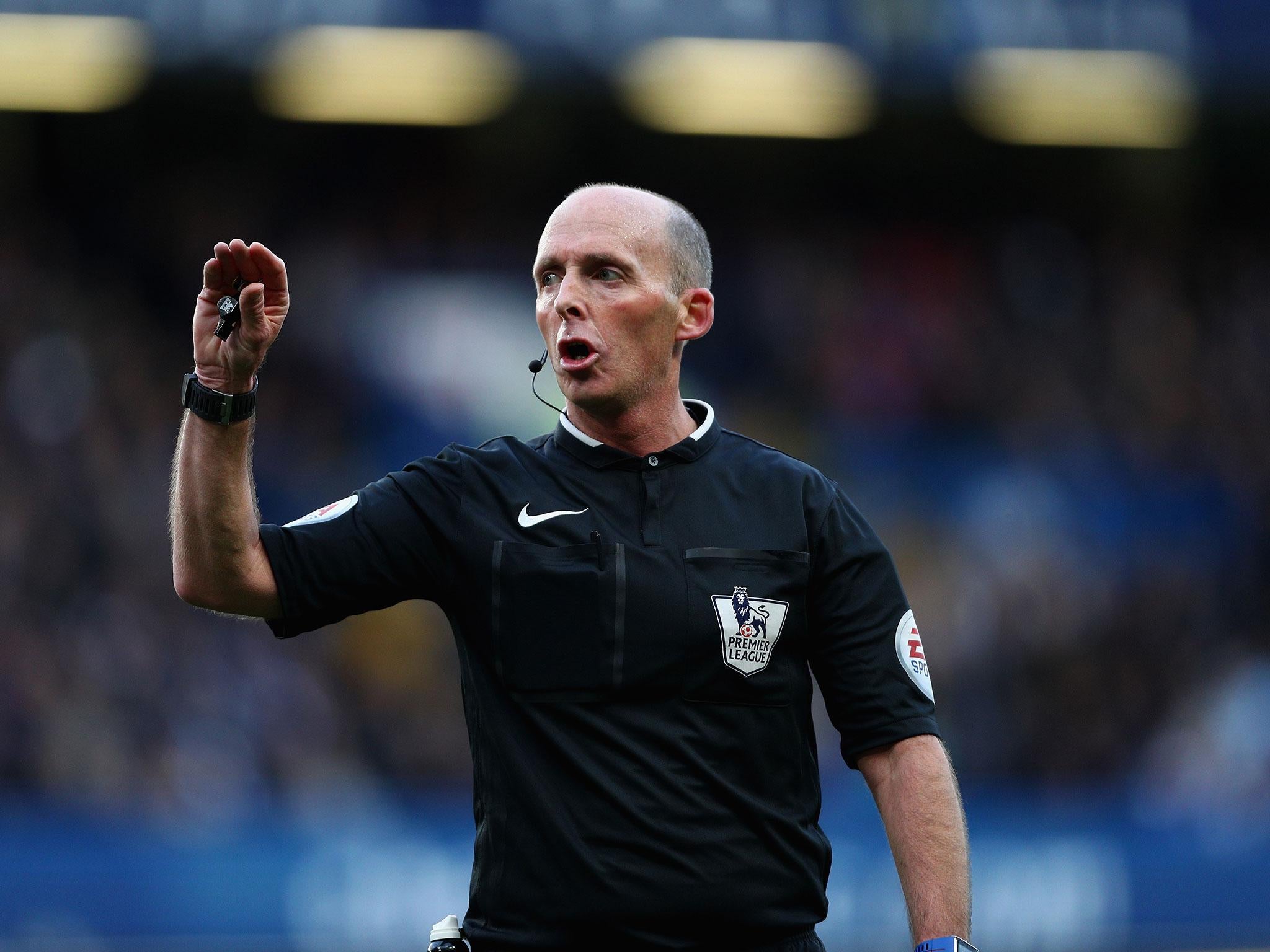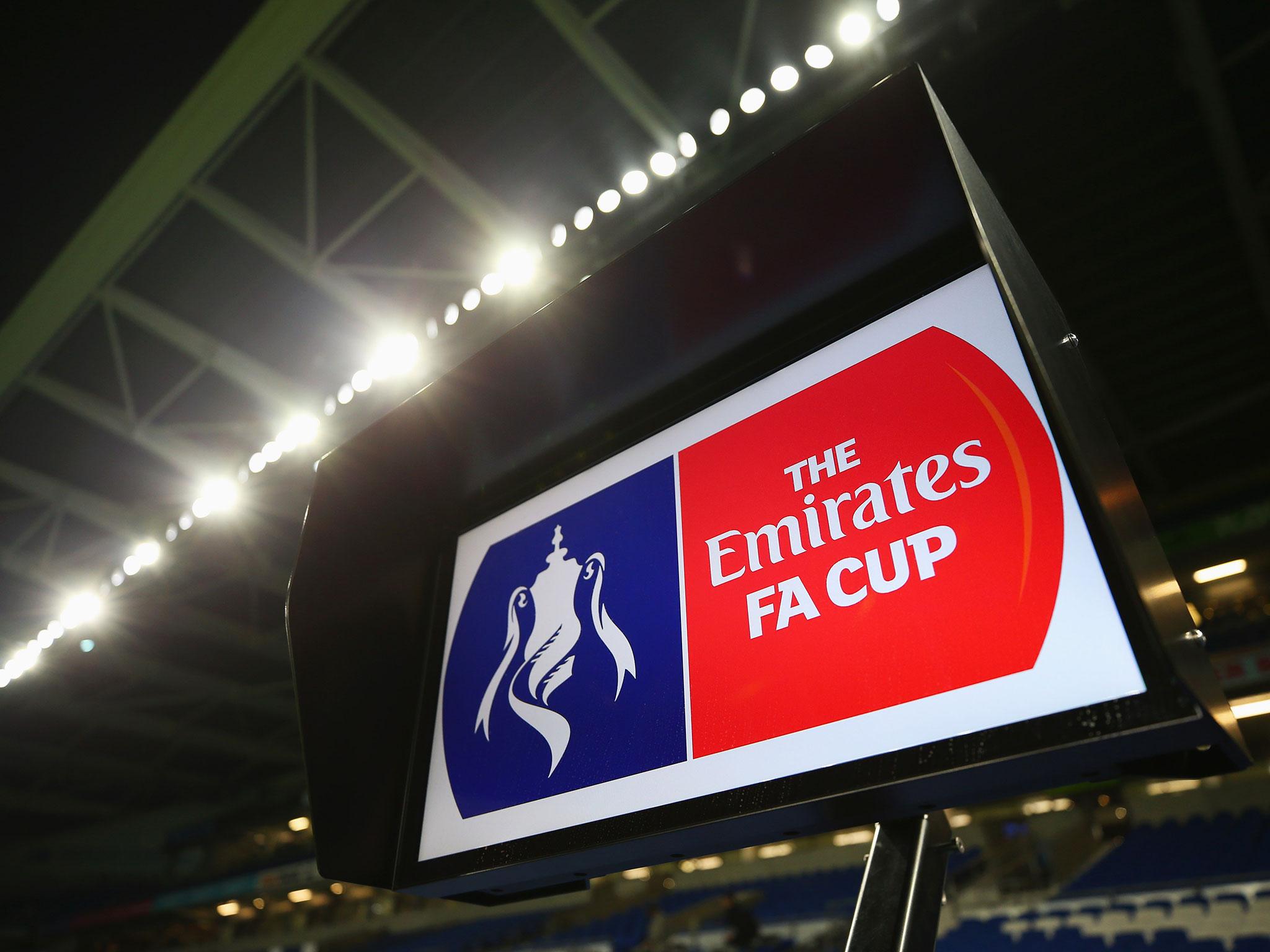Mike Riley says early signs are positive with VAR experiment
VAR was used by Martin Atkinson for two Chelsea penalty appeals during Wednesday night's Carabao Cup semi-final first leg against Arsenal at Stamford Bridge

Your support helps us to tell the story
From reproductive rights to climate change to Big Tech, The Independent is on the ground when the story is developing. Whether it's investigating the financials of Elon Musk's pro-Trump PAC or producing our latest documentary, 'The A Word', which shines a light on the American women fighting for reproductive rights, we know how important it is to parse out the facts from the messaging.
At such a critical moment in US history, we need reporters on the ground. Your donation allows us to keep sending journalists to speak to both sides of the story.
The Independent is trusted by Americans across the entire political spectrum. And unlike many other quality news outlets, we choose not to lock Americans out of our reporting and analysis with paywalls. We believe quality journalism should be available to everyone, paid for by those who can afford it.
Your support makes all the difference.Referees chief Mike Riley believes the Video Assistant Referee experiment in English football has begun well and can add value to the game.
VAR can be used by referees for match-changing decisions relating to the awarding of goals, penalties, red cards and for cases of mistaken identity.
It was used by Martin Atkinson for two Chelsea penalty appeals during Wednesday night's Carabao Cup semi-final first leg against Arsenal at Stamford Bridge.
VAR was also used in Monday's FA Cup third round tie between Brighton and Crystal Palace and Riley, general manager of the Professional Game Match Officials Board (PGMOB), is encouraged by the early stages of the trial.
"It has gone very well in the first few games," Riley told BBC Radio 5 Live. "We've had the opportunity to use it, it has been used very effectively and we've come out with the right outcomes.
"The whole idea of the protocol is to have minimum interference on the game but get the right decisions to have the maximum impact."
Atkinson consulted VAR official Neil Swarbrick, based at Premier League headquarters in Stockley Park, after a tussle between Calum Chambers and Cesar Azpilicueta at a first-half corner and no penalty was awarded.
It was the same outcome when Atkinson went to his headphones to consult Swarbrick two minutes from time after Danny Welbeck beat Cesc Fabregas to the ball and the Chelsea player went down in the penalty area, although that consultation took one minute and 25 seconds.
"That is a little bit longer than we have done in training," said Riley. "It typically takes the VAR around 30 to 40 seconds to look at something.

"But we are at the start of the process and it will take time for the VARs to become accustomed to this. The more we do of that the faster we will be at it and the less impact we will have on the game.
"If you look at the (Welbeck/Fabregas) situation it was quite a complex one. Did the player play the ball? Did he make contact with his opponent? If, on average, it takes 30 or 40 seconds on average that will be acceptable. This was complicated and took a bit longer."
Riley acknowledged that more needs to be done to inform spectators at matches when VAR is being deployed by referees.
"It is really important for spectators in the stadium to understand when it is being used and when not.
"Currently, if you look at the referee, you will see him put his finger in his ear but I accept that in the stadium that can be quite difficult to see so the question now is how can we improve that experience for spectators.
"We are reviewing the games from this week and coming up with some ideas for the games next week to try to make that more effective."
Asked if having the VAR official at the stadium had been considered, Riley replied: "If you look at other countries that have used the system so far you have both approaches. We think there are advantages to having all the games coming back to Stockley Park so you can have all the operations in one room and achieve great consistency in decision making."
Swarbrick was VAR for the matches on Monday and Wednesday but Riley said more officials will come on board as the experiment continues.
"It is important to give people the opportunity to experience two or three games so they understand the process. Mike Jones has been appointed to VAR the games next week and, as we continue with the experiment, other people will take that role as well."
Riley believes the game will benefit from the introduction of VAR.
He added: "The VAR is not there to sanitise the game. It is there to be used in situations where the referee team have made a clear and obvious error on the field of play.
"VAR can actually add value. If the referee has made a wrong decision and VAR can quickly correct that and get the right outcome then the game will benefit."
PA
Join our commenting forum
Join thought-provoking conversations, follow other Independent readers and see their replies
Comments